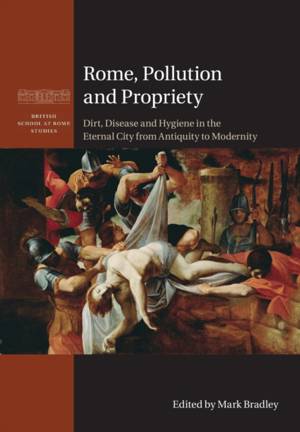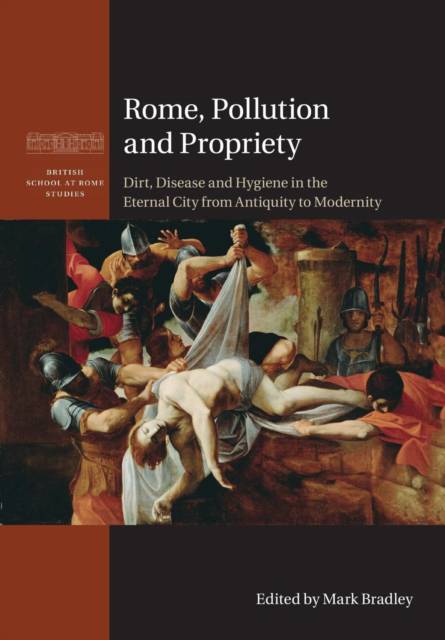
Door een staking bij bpost kan je online bestelling op dit moment iets langer onderweg zijn dan voorzien. Dringend iets nodig? Onze winkels ontvangen jou met open armen!
- Afhalen na 1 uur in een winkel met voorraad
- Gratis thuislevering in België vanaf € 30
- Ruim aanbod met 7 miljoen producten
Door een staking bij bpost kan je online bestelling op dit moment iets langer onderweg zijn dan voorzien. Dringend iets nodig? Onze winkels ontvangen jou met open armen!
- Afhalen na 1 uur in een winkel met voorraad
- Gratis thuislevering in België vanaf € 30
- Ruim aanbod met 7 miljoen producten
Zoeken
Rome, Pollution and Propriety
Dirt, Disease and Hygiene in the Eternal City from Antiquity to Modernity
€ 60,95
+ 121 punten
Omschrijving
Rome, Pollution and Propriety brings together scholars from a range of disciplines in order to examine the historical continuity of dirt, disease and hygiene in one environment, and to explore the development and transformation of these ideas alongside major chapters in the city's history, such as early Roman urban development, Roman pagan religion, the medieval Church, the Renaissance, the Unification of Italy, and the advent of Fascism. This volume sets out to identify the defining characteristics, functions and discourses of pollution in Rome in such realms as disease and medicine, death and burial, sexuality and virginity, prostitution, purity and absolution, personal hygiene and morality, criminality, bodies and cleansing, waste disposal, decay, ruins and urban renovation, as well as studying the means by which that pollution was policed and controlled.
Specificaties
Betrokkenen
- Uitgeverij:
Inhoud
- Aantal bladzijden:
- 342
- Taal:
- Engels
- Reeks:
Eigenschappen
- Productcode (EAN):
- 9781316626597
- Verschijningsdatum:
- 22/09/2016
- Uitvoering:
- Paperback
- Formaat:
- Trade paperback (VS)
- Afmetingen:
- 170 mm x 244 mm
- Gewicht:
- 544 g

Alleen bij Standaard Boekhandel
+ 121 punten op je klantenkaart van Standaard Boekhandel
Beoordelingen
We publiceren alleen reviews die voldoen aan de voorwaarden voor reviews. Bekijk onze voorwaarden voor reviews.










